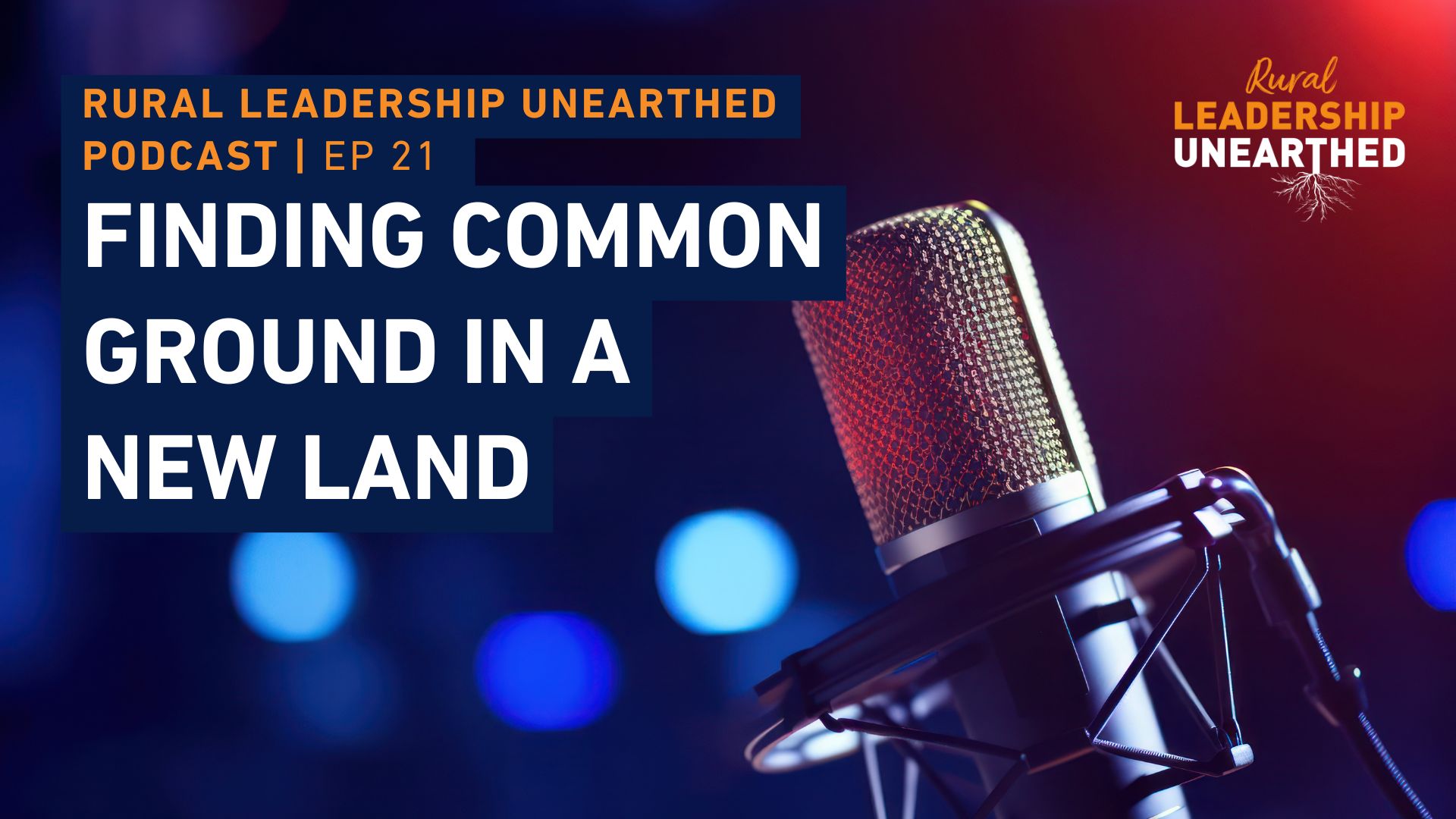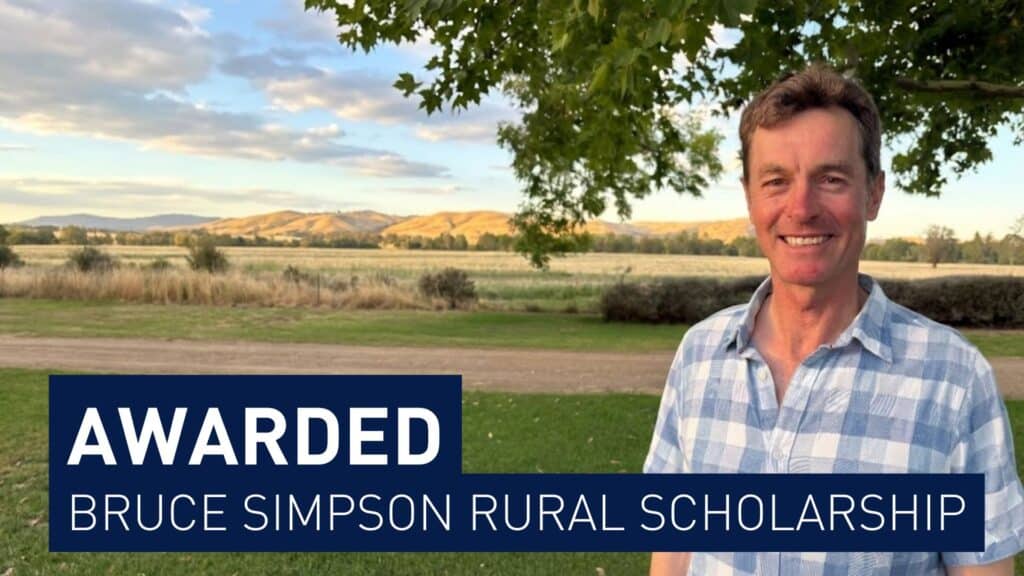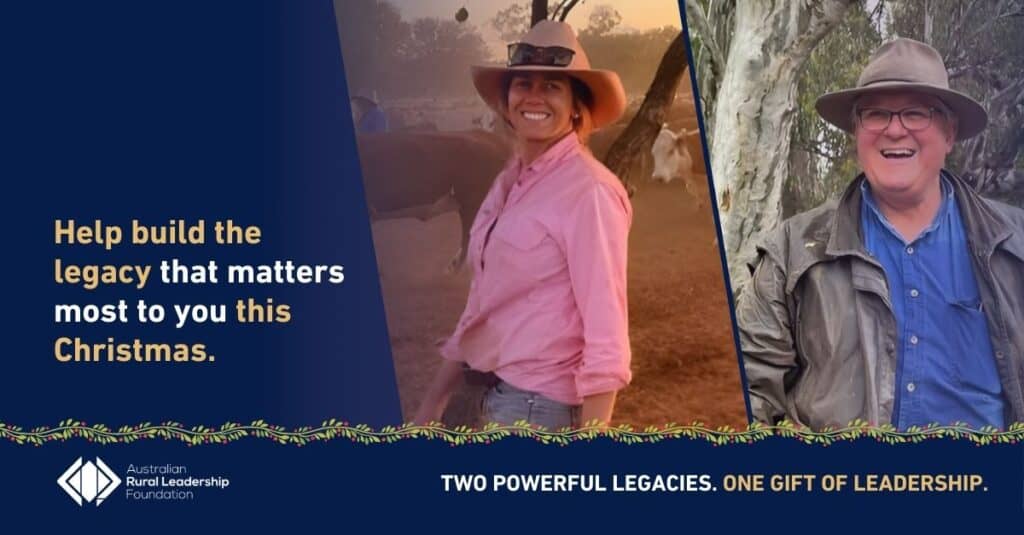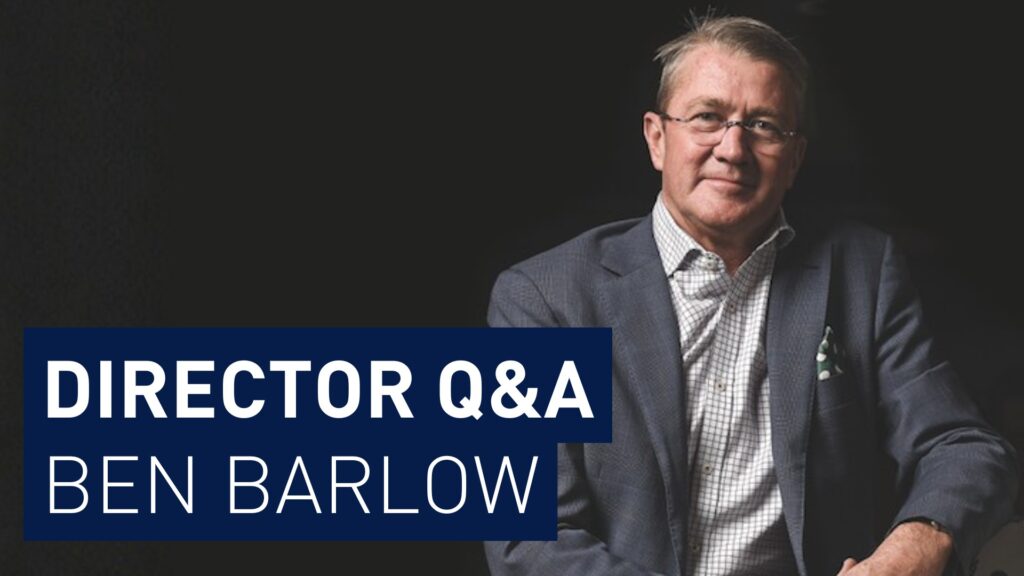In the latest episode of the ARLF podcast, Rural Leadership Unearthed, we’re joined by Diana Sanchez, who lives and works in Toowoomba as a laboratory coordinator in the seed and grain industry. When Diana and her husband decided in 2020 to relocate from their home in Colombia to re-set their lives and develop their English language skills, she couldn’t have predicted the leadership pathways that would open to her.
When Diana first began a role as a grain tester working alongside other seasonal workers from diverse backgrounds in a lab, she experienced the frustrations of miscommunication. Spurred on to support others sharing similar experiences, Diana became focused on the ingredients of strong communication and what helps us to be understood.
In 2023, Diana was tapped on the shoulder for the ARLF’s TRAIL Emerging Leaders Program—an experience that affirmed her leadership capabilities and the importance of the contribution made by Australia’s immigrant community. Now, she’s modelling how to create strong bonds within her culturally and linguistically diverse team, and advocating for workplaces to understand the value of creating opportunities for connection where all are given the chance to be heard and understood.
Claire Delahunty: Could you please tell us a little bit about where you’re based and what you’re doing currently?
Diana Sanchez: I’m currently based at Toowoomba. I am working as a laboratory coordinator in the seed and grain industry. I have been doing this role for one year and a half now. I’m originally from Colombia. I came to Australia after a marriage crisis—I think that is the best way to put it. Sometimes we have to be pushed to the edges to take decisions. We decided to come to Australia basically to improve our English. We landed in Melbourne and after being there for 2020 during COVID lockdowns, we decided just to run away. And we found in Toowoomba a place where the industry was thriving. We have been here for four years now and loving it.
CD: And what were your agricultural roots in Colombia?
DS: In Colombia I was more working in horticulture. And when we came here I had to sit down and say, okay, these are the skills that I have. The funny thing with agriculture is you can have a set of skills or you can have a knowledge but the climate conditions are different and you have to have that in consideration. In the region that I was living in Colombia, we were in the middle of the mountains. Here it’s more plains, so the machinery that we use is completely different. The culture is different. I decided, okay, basically I need to start from scratch from the bottom and learn and make my way up. I was really aware of that.
CD: What was it like starting, as you say, at the bottom or at the entry level?
DS: After doing odd jobs, I found a job in a big company doing grain testing. I was working with other seasonal workers in a laboratory and I think that job was the one that gave me my entry to the industry because it was like an open door to a new completely world. And after that I could get the job that I have right now at this company.
CD: Your job now is a much more skilled position. What are some of those technical skills that you’ve developed?
DS: I have been here for three and a half years now, and there were two challenges there at the beginning. First was the barrier of communication because at the time that I started, my English was still an issue. My bosses were pretty aware of that. And they were like, okay, we are going to help you. And also I did my part and it was on this slow progression that at the same time that I was learning these new skills and technical knowledge, I was also developing my communication skills. I cannot say that one or the another came first. It’s something that just grows together.
CD: And had you always been conscious of communication?
DS: I believe that awareness about communication started when we came to Australia. And it becomes more tangible when I went to the TRAIL course with the Australian Rural Leadership Foundation, because I was put in a scenario where I realised that I was struggling and how bad my struggle could be when I was trying to communicate. And after the TRAIL course, I can say now that communication is not just about the language. There are more things that are in there.
CD: How did you come to take part in the TRAIL program, and what were you thinking ahead of going into it?
DS: I had no idea about this until the people from the Mulberry project (who were at the time a non-profit organisation that was supporting migrants). And they made the connection. They saw something at home and that is how I entered into the program.
CD: What do you think they saw in you?
DS: They said something that was important is that I was already involved within the industry. I was working here, I was networking, I was trying to learn how things work here, I was connecting with people. And I think that saw the potential of that situation.
CD: And then what were you thinking going into it, did you have a sort of full idea of what the program would be like?
DS: I think the program surprised me and surprised us all because you never imagine all of the things that you can learn when you are hiking for five days. Just merely hiking. It was like, what am I doing here? Honestly. But I think it’s a program that is beautifully designed to put a bunch of people that they don’t know each other just trying to go through a team development process. And the value on experiencing it is way more important and valuable than just sitting and listening to a lecturer.
CD: What did you discover along the way?
DS: One of the many things that I discovered there is that I need to ask for help. I always was the kind of person where I just try to figure it out by myself. And there are situations where it’s not sustainable at all. And there I didn’t have my husband or close people to help me feel more confident to just put my weaknesses on the table and say, okay, I need help.
There were these strangers that I had to say, look, I need help with this. I also had to speak up for the things that I wanted to communicate and realise how I was changing my behaviour under pressure and stress. I became a different person under these situations.
CD: What were some of the things that you had to ask for help with?
DS: The first one was that we had to carry our own gear and food. I’m a small person, I’m tiny, thin, and I was carrying a bag that was more than 10% of my own weight. That was a lot. It was like is Diana carrying the bag or is the bag carrying Diana? I had to ask for help and let things go, emotionally and physically. That was the biggest one and the hardest for me.
CD: What did it feel like doing that?
DS: At the beginning I was like, I’m a strong woman. I can do this. I’ve got this. I’m going to show everyone that I can do it. No, I couldn’t. I couldn’t have survived. I realised that I had another strength, that I could work on my other strengths, but not on that one.
CD: And what were the other strengths that were then being revealed to you?
DS: Even though I was struggling physically speaking … I found in that the opportunity to know about my own self-awareness, and how that awareness could help others. It’s like if you are having this struggle, why don’t you try this? That was another valuable lesson.
CD: What happened on TRAIL that solidified some of what you were understanding about communication and its importance?
DS: The way we bond. In communication, one of the first things that we need to have in consideration is how we relate to the other person. We are always trying to find what is common between the two of us because communication starts with a strong relationship and when you put people that they might look, seem or behave different, at first you can feel rejected and somehow I felt it and it didn’t mean that was the reality. It wasn’t. It was also what was in me. We have to be aware of the things that make it hard to respect our differences and find all those common scenarios that make us human. Because it doesn’t matter where we are coming from. We all have the same struggles at the end. Those struggles are just covered by other things that, anthropologically speaking, we see first. We see first how we dress, how we behave, how we look, the colour of our eyes or whatever. But at the end of the day, we are all here trying to do our best. And I think we have to focus on that. I think it’s more a conscious and a logical decision that we have to pursue.
CD: And how quickly did the TRAIL program force you to embrace those things you had in common and put aside what you were feeling about perhaps being an outsider and being different?
DS: The time that it took me was within the process, and within those seven days. That is the beauty about this program. Everything happens so fast and it’s designed to be that way. It’s unbelievable. It’s one of the things that I admire the most about the program, because then I realised that many of these things were just coming from me. And I realised that people were also acknowledging me, and the things that I was doing.
CD: You were saying that you were becoming aware that there were things in yourself that were perhaps making judgments as well. How successful have you been after TRAIL in being conscious of this every day?
DS: I have to say that after the program, I had the opportunity to talk to some alumni and they said, this program changes you for life. Because every time that you are going to a new scenario, those experiences that you had during the program, they come back and they gain a new meaning, basically.
This is what I have felt so far. And I’m saying this because during my working experience, this has happened. It’s every time that I’ve been facing a communication issue, I go back to my DISC assessment and I check, okay, where is this person coming from?
At the beginning it was more like I had to sit down and study it. With time, it became more natural. I also learned how to be open about it, and being open with my co-workers helps.
CD: Was there anything you did not expect that you have taken away from the TRAIL program?
DS: Yes, one of those things was the self-awareness and how I can behave or how my behaviour changes when I am under pressure, under stress, or tired. That changes a lot. So if my limits were ‘this high’, now I try to lower them. Before I get to this point, I try just to do something different. Otherwise, I’m going to be lost. And the other thing that I didn’t expect was this sense of responsibility with the things that I say and share. And every time I talk to others about these topics, feel like it’s a responsibility that I have to share. It doesn’t matter if it’s one on one or two or more people.
CD: And where do you feel like your leadership currently is really making a difference? Are you making a change beyond yourself in this space of communication?
DS: I think I am. One of the amazing things about leadership is that sometimes you cannot measure it. You can feel it and other people can as well. I’m always trying to do something that lasts beyond my time. I know that I’m not going to be here in this company forever, so I try as much as I can to just bring that awareness when something happens.
And I also believe that as is the leader, is the team. If you are always whinging about things, people will start whinging about things. And for me, that is something that has made a difference here. Now I’ve realised that sometimes those little changes start even with the person that you have next to you.
CD: It doesn’t have to, as you said, happen on that mass scale. It does matter if you’re being a bridge to the people in your team and to the people beside you.
DS: It’s one of the things that keeps me going. It’s also about curiosity. We always say in our work environment, we don’t know how we do it. We are a group of people who are so different and we get along pretty well. I was thinking about this last night because I was reading about how there are some differences in how we see the world depending on regions. And sometimes with some cultures, the difference becomes even bigger and the gap is even bigger. And sometimes we have to focus on those differences. It can be about promoting scenarios where we can know each other, and closing those gaps.
CD: What would your advice be to employers and co-workers and businesses who are working with migrant workers?
DS: My advice to employers and companies would be first to propitiate those scenarios where people can know each other. Sometimes I know we are in the rhythm of doing, doing, doing, and you cannot stop because if you stop, you’re losing X amount of money. Yes, you might in the short term, but in the long term, you can find people that will stay in your company way longer.
And the other thing that I would advise is to bring all of your leaders together into a common agreement where scenarios of listening and hearing what people need to say are allocated. Sometimes as leaders or team leaders, we are always rushing. If we are in a rushing mood, a person who is, let’s say, an introvert or likes to speak slower is not going to come and talk to us. And we might be missing really important inputs about what is going on.
To catch the full interview, head to the Rural Leadership Unearthed podcast website.
Diana’s story is one chapter of a larger narrative of ARLF change-makers and visionaries who are helping to reshape our rural, regional and remote communities.
To find out more information about the TRAIL Emerging Leaders Program or register your interest for future programs, visit our website.





